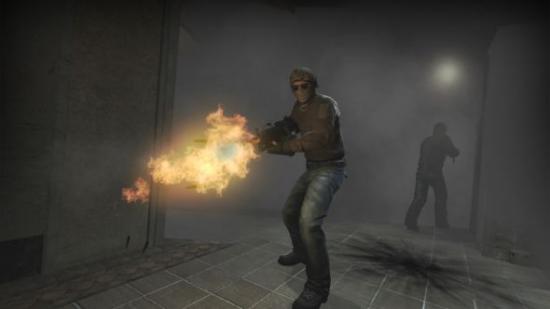A recent post by Valve’s anti-cheat team on the CS:GO subreddit makes interesting reading for anyone interested in the constant war against hackers in multiplayer games. Valve were responding to a post suggesting they try to detect cases of hacking automatically, rather than relying on player reports.
For more quality shooting – and possibly fewer aiming or spinning bots – try some of the best FPS games on PC.
The original post asks “why are spinbots not auto-detected or at least kicked for ‘improper play’.” A spinbot is an especially obvious type of hack which causes the user to spin so fast that their aimbot – a more common hack – can find players behind them. Another advantage is that it makes their own head harder for rival aimbots to detect.
One strongly upvoted reply by IceAero speculates that spinbots behave so abnormally that they should be easy to automatically detect, but that Valve “may not want to deal with the hassle of getting it right (i.e., no false positives).” If they want to be more cautious, suggests IceAero, Valve could use auto-detection to submit cases to Overwatch, instead of outright banning them.
In a CS:GO context, Overwatch – not to be confused with the Blizzard game – is an anti-cheating scheme. Experienced players are selected to review footage from a suspected cheater’s match, with suspects selected according to reports from other players. “Presumably,” says IceAero, spinbotters “get banned there very quickly.”
Valve’s response suggests the problem is more complicated. They say “any hard-coded detection of spin-botting leads to an arms race with cheat developers – if they can find the edges of the heuristic you’re using to detect the cheat, the problem comes back. Instead, you’d want to take a machine-learning approach, training (and continuously retraining) a classifier that can detect the differences between cheaters and normal/highly-skilled players.”
Building this tool comes with various challenges – such as hardware demands and the need for a massive datacentre to analyse the millions of CS:GO games played each week – but Valve say they’ve “started this work. An earlyversion of the system has already been deployed and is submitting cases to Overwatch. Since the results have been promising, we’re going to continue this work and expand the system over time.”
